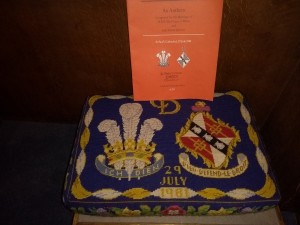It’s a long time since I visited the Barbican Centre – not within the lifetime of this blog. Even longer ago, I performed there, with the Tallis Chamber Choir (two concerts: Britten’s St Nicholas + carols, and Mozart’s Mass in C minor). Time for a return visit at the end of a day-trip to London to hear Simon Rattle and the LSO, in a pairing of two works about facing death.
I timed my visit to coincide with this concert as it included Berg’s violin concerto played by Lisa Batiashvili. Rattle is noted as a conductor of Berg – I heard him conduct the Three Orchestral Pieces once at the Proms, which made a sufficiently deep impression that some years later I tuned into Radio 3 during a re-broadcast of that performance and was able to identify it as the one I’d been to.
This performance was on the subdued side; sometimes the soloist seemed subsumed in the orchestra (and not just where Berg asks for this effect), although the orchestra was not as large as some I’ve heard in this work. (It tends to get paired with Mahler symphonies.) Perhaps my location near the front and a long way round to the left contributed to this. I would have described it as delicate except for the rather harsh tone she adopted at times. I’ve never heard a performance where the clarinets which introduce the Bach chorale sounded more like an organ or harmonium.
I have more familiarity than most with Beethoven’s Christ on the Mount of Olives, as years ago a Beethoven-loving friend lent me a recording for a few weeks and I wondered why it didn’t appear more frequently in the concert hall. Evidently it was once more in the repertoire, as the castrato Alessandro Moreschi was acclaimed for his performances in the late 19th century. (So he must have been pretty good, though presumably the chance of an outstanding castrato arising dropped as the practice became rarer.) The writing for the Angel in particular is florid coloratura in a way that Beethoven’s writing for voice (and for instruments other than piano?) usually isn’t, and somehow I felt that the style didn’t come naturally to him. I’d be interested to sing the choral part one day, though the men have more to do. If you had the resources you’d ideally want a double chorus of men, as they have to swap quickly between being Jesus’ disciples and the soldiers who have come to arrest him.
Reviews:

